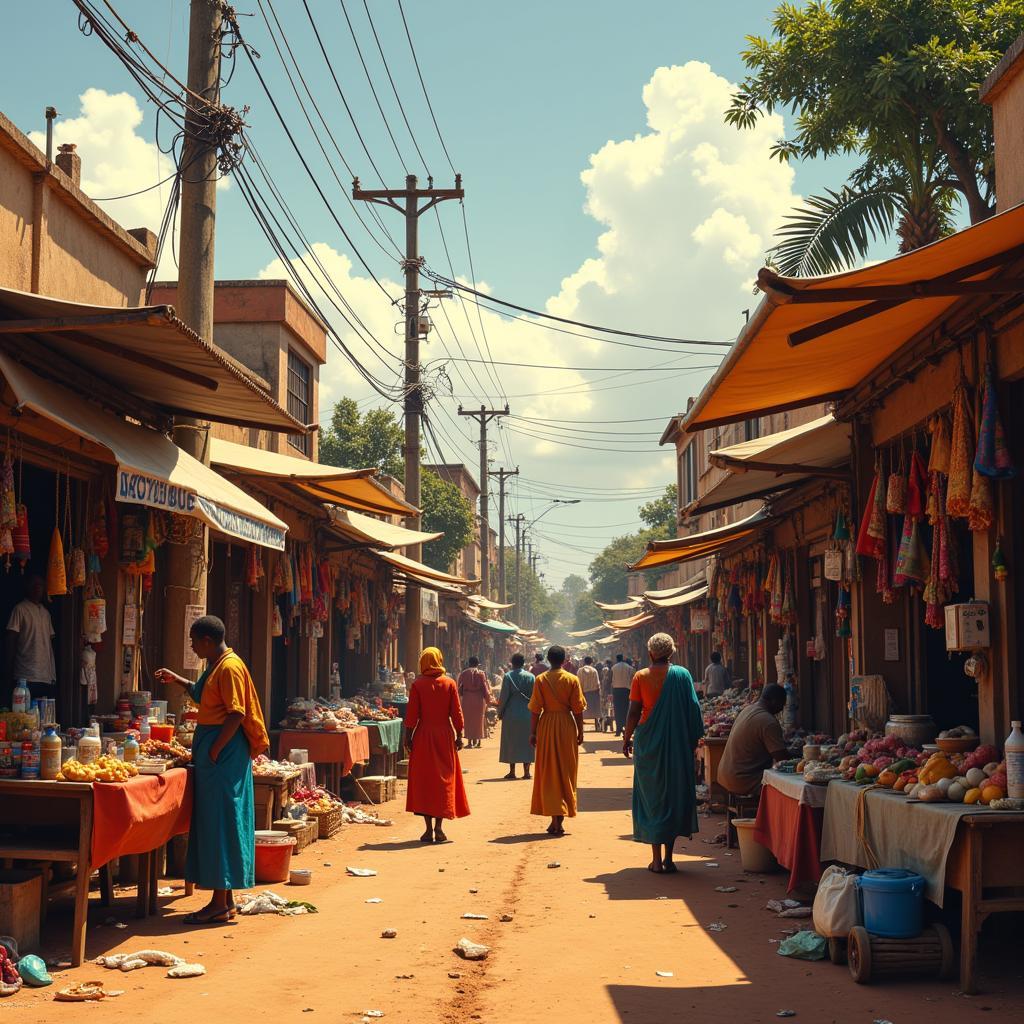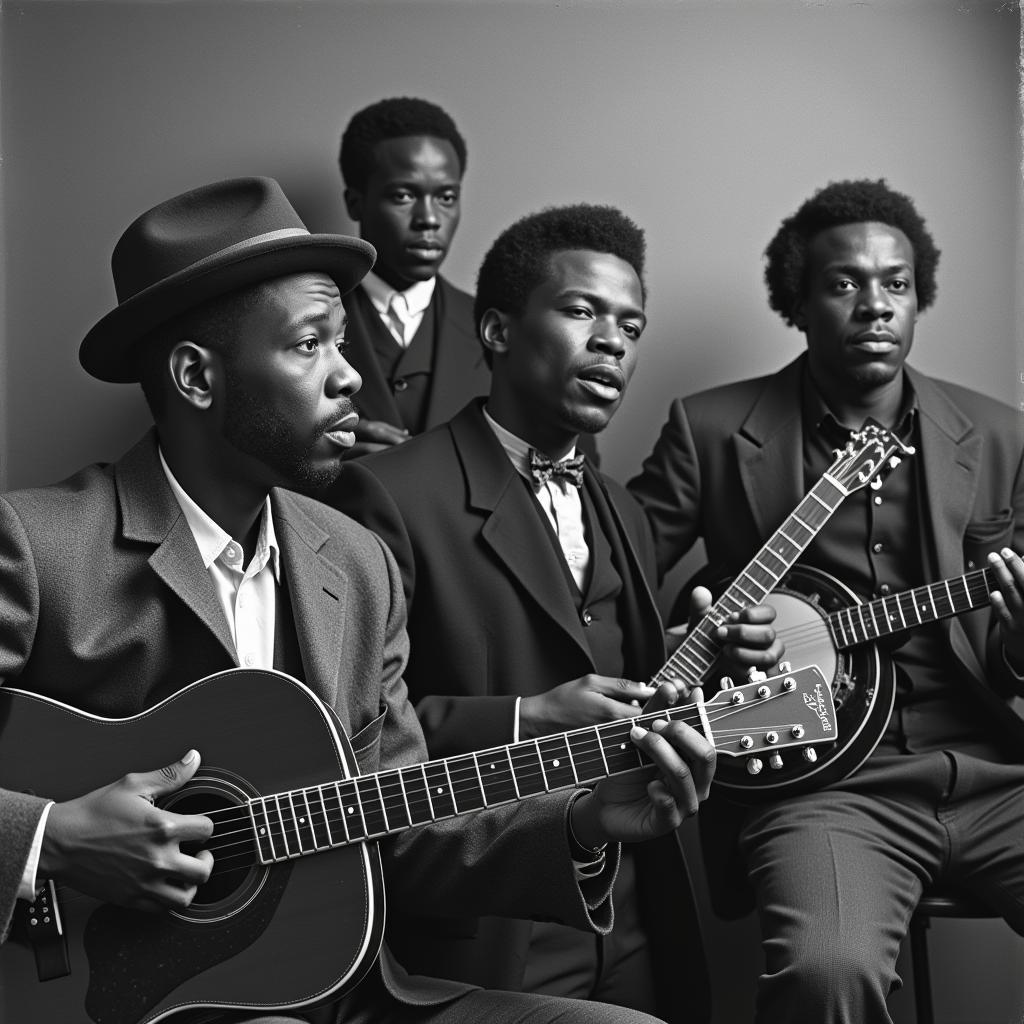Exploring the Vibrant Tapestry of African Diaspora Culture
African Diaspora Culture represents the rich and complex heritage of Africans and their descendants dispersed across the globe. From the forced migrations of the transatlantic slave trade to more recent voluntary movements, the African diaspora has shaped societies and cultures worldwide, leaving an indelible mark on art, music, language, cuisine, and traditions. 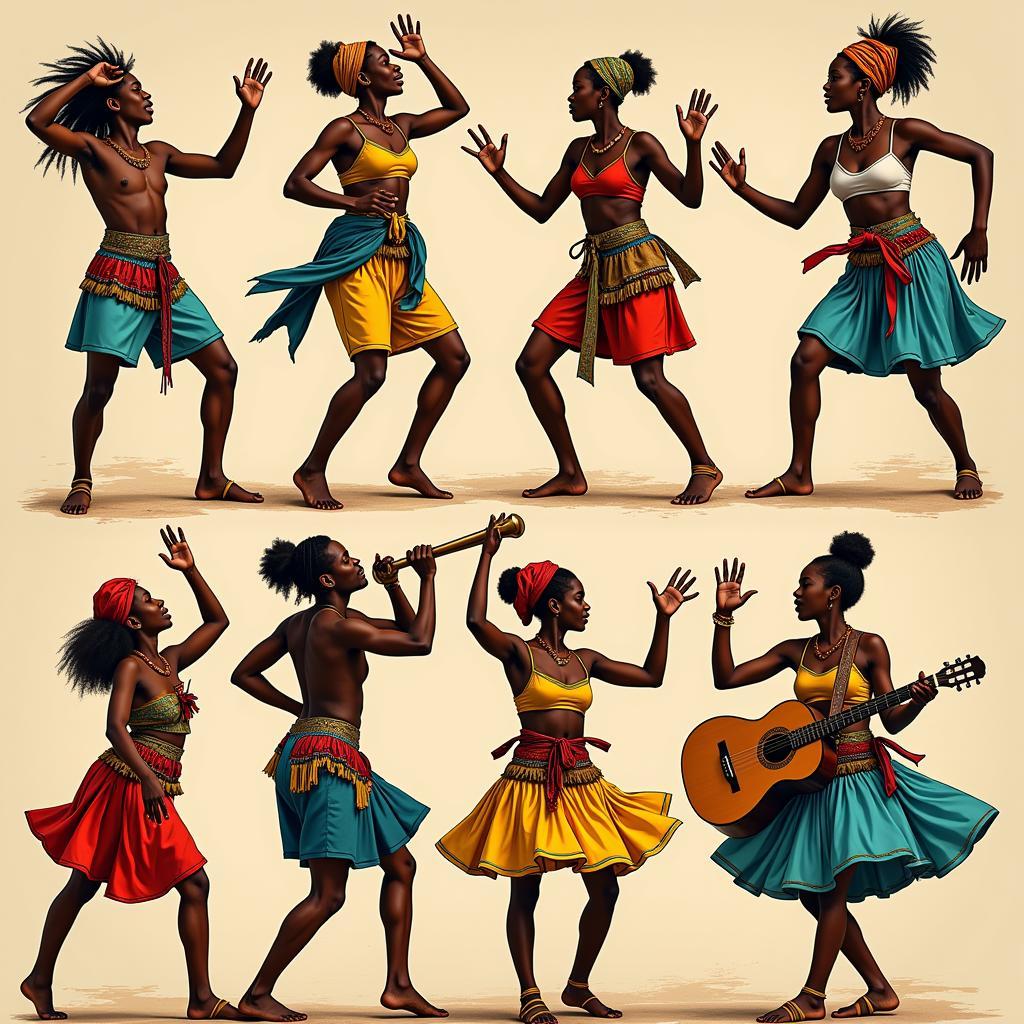 African Diaspora Music and Dance Traditions
African Diaspora Music and Dance Traditions
The Roots of African Diaspora Culture
Understanding African diaspora culture requires acknowledging its painful origins. The transatlantic slave trade forcibly displaced millions of Africans, scattering them across the Americas and the Caribbean. This forced migration created a complex interplay of cultural retention, adaptation, and innovation. Africans held onto their ancestral traditions, languages, and spiritual beliefs while simultaneously adapting to new environments and interacting with other cultures. This process of cultural exchange and hybridization gave rise to distinct cultural expressions in different regions of the diaspora. African diaspora roots and culture offers a deeper look into the historical context.
The Influence of African Traditions
Despite the hardships of enslavement and displacement, African cultural elements persisted and evolved in the diaspora. Music, for instance, played a crucial role in preserving cultural memory and expressing resistance. Rhythms, instruments, and musical forms from West Africa found their way into various genres like blues, jazz, and reggae. Similarly, storytelling, oral traditions, and spiritual practices, often adapted and blended with other belief systems, continued to shape the cultural landscape of the diaspora. 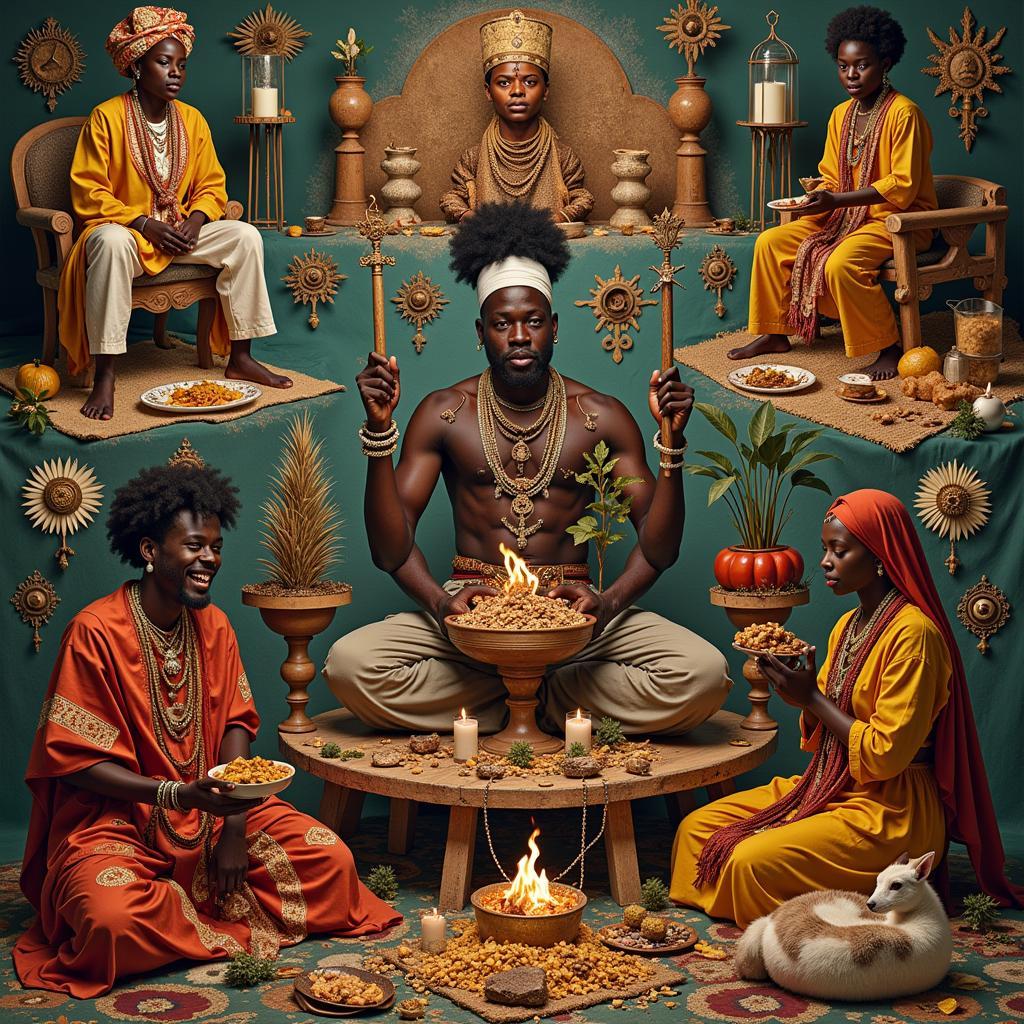 Spiritual Practices in the African Diaspora
Spiritual Practices in the African Diaspora
African Diaspora Culture in the Americas
The Americas represent a significant hub of African diaspora culture. From the vibrant rhythms of samba in Brazil to the soulful melodies of gospel music in the United States, the influence of African culture is undeniable. In the Caribbean, traditions like Santería in Cuba and Vodou in Haiti reflect the syncretism of African spiritual beliefs with Catholicism. Food, too, plays a vital role in expressing cultural identity. Dishes like gumbo in Louisiana and jerk chicken in Jamaica showcase the fusion of African culinary traditions with local ingredients and flavors. african diaspora in north america focuses specifically on the North American experience.
How has food shaped African Diaspora culture?
Food has served as a powerful symbol of cultural identity and resilience within the African diaspora. Traditional recipes and cooking techniques passed down through generations have preserved cultural memory and fostered a sense of community.
African Diaspora Culture Beyond the Americas
While the Americas are often the focus of discussions about the African diaspora, African communities exist across the globe, each with its own unique story and cultural expressions. In Europe, for instance, African diaspora communities have emerged through both historical and contemporary migrations. These communities have contributed significantly to the cultural landscape through music, art, literature, and cuisine. African diaspora notes provides valuable insights into the diverse experiences of the diaspora. african in turkey explores the specific case of the African community in Turkey.
What are some examples of African diaspora communities in Europe?
Significant African diaspora communities exist in countries like France, the United Kingdom, the Netherlands, and Portugal, reflecting historical ties and contemporary migration patterns.
“The African diaspora is not a monolithic entity, but rather a tapestry of interconnected cultures, each with its own unique story to tell,” says Dr. Aisha Mwamba, a renowned scholar of African diaspora studies.
The Continued Evolution of African Diaspora Culture
African diaspora culture is not static; it continues to evolve and adapt in the 21st century. New forms of artistic expression, cultural hybridity, and political activism are shaping the future of the diaspora. The rise of social media and digital platforms has also facilitated greater connectivity and exchange among diaspora communities worldwide. african bbw in bangalore shows an example of such communities.
“The digital age has empowered diaspora communities to connect, share their stories, and celebrate their heritage in unprecedented ways,” adds Dr. Kwame Nkosi, a leading voice in African diaspora cultural studies. 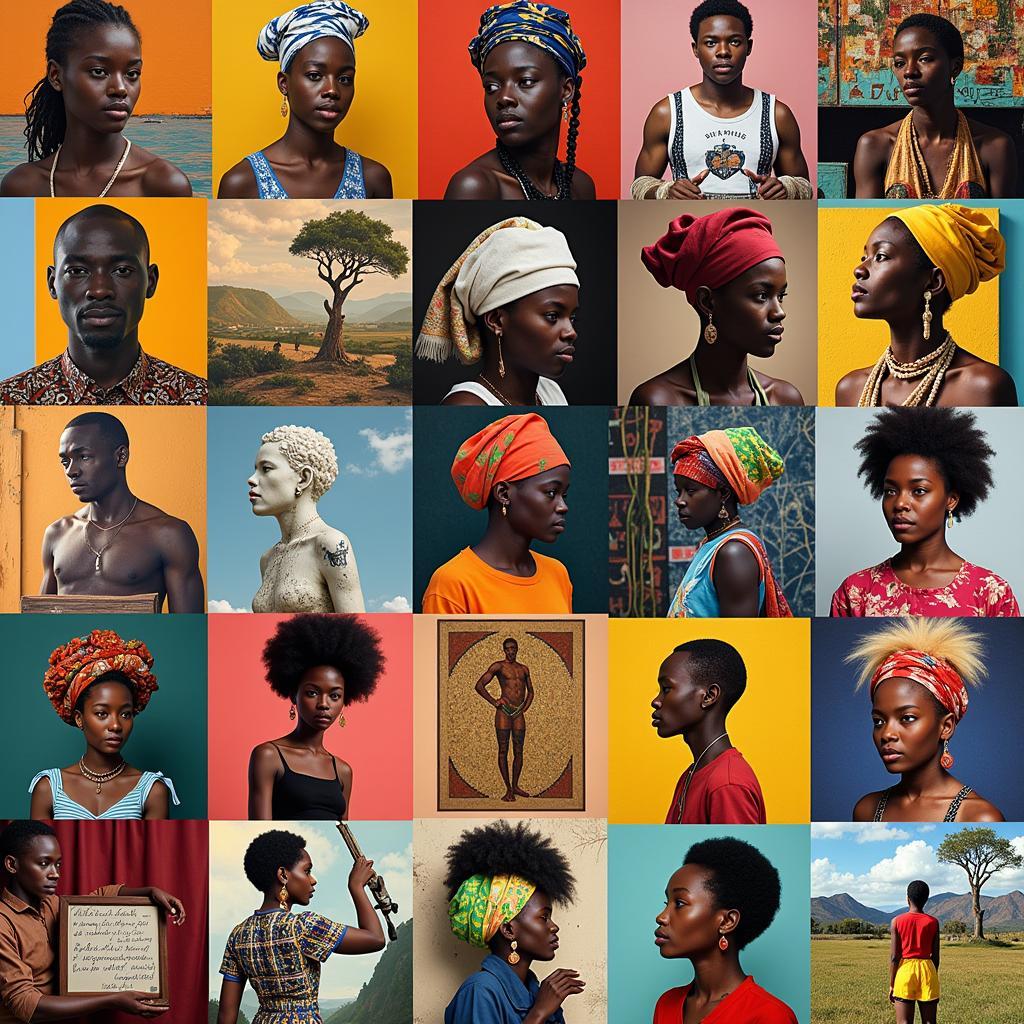 Art and Literature in the African Diaspora
Art and Literature in the African Diaspora
In conclusion, African diaspora culture represents a vibrant and dynamic tapestry of traditions, experiences, and expressions. From its roots in the forced migrations of the past to its continued evolution in the present, African diaspora culture continues to shape the global cultural landscape. Understanding and appreciating the richness and complexity of this heritage is essential for fostering intercultural dialogue and celebrating the diversity of human experience.
FAQ:
- What is the African diaspora?
- How did the transatlantic slave trade impact African diaspora culture?
- What are some examples of African diaspora traditions?
- How does food play a role in African diaspora culture?
- How has technology influenced the African diaspora?
- What are some key figures in African diaspora studies?
- Where can I learn more about African diaspora culture?
For further assistance, please contact us at Phone Number: +255768904061, Email: kaka.mag@gmail.com or visit our office at Mbarali DC Mawindi, Kangaga, Tanzania. We have a 24/7 customer service team available to help. You can also explore other related articles on our website.
